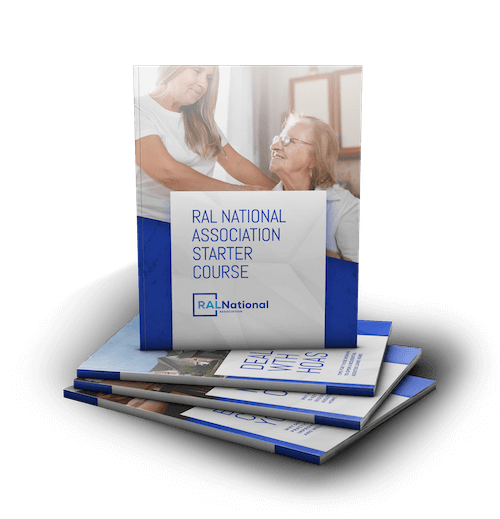With age comes a great appreciation for time. Age also comes with an increased amount of time. For many seniors, time is equated with relaxation.
Yet, others may choose to work part-time jobs or care for young grandchildren during the day.
Regardless of the options, most seniors find themselves gifted with time and much to spare. Becoming idle can be a dangerous proposition, but one many find unavoidable. It is vital that seniors stay physically and mentally active.
Spending your days sitting for 10 hours watching television is not the picture of health.
Such sedentary lifestyles will doubtlessly lead to weight gain, metabolic disorders, heart disease, and cognitive decline.
These conditions decrease mobility causing health conditions to increase in severity.
Staying active, however, prevents many of these conditions and improves one’s overall health profile.
What types of hobbies or activities are best for a senior to indulge?
Physical activity is not all exertion and sweat. Surprisingly, it also includes hobbies that stimulate the body in a variety of ways. When combined, a senior’s life is transformed from a state of idleness to vibrance. The good news: The Residential Assisted Living National Association can show caregivers how easy it is to start and maintain. The bad news: well, there really is none.
ACTIVE LIVING FOR SENIORS
Physical and mental activity for seniors can seem an immense undertaking. To help with simplification, we will divide our exploration into four key areas:
- Physical Fitness Activities
- Outdoor Activities
- Social Activities
- Mental Activities
By evaluating these areas, we will grasp more fully the benefits of physical and mental activity.
I. PHYSICAL FITNESS ACTIVITIES
- Sports:
Whoever says their days of playing sports are over is wrong. Sports are forever. Sporting activities are fun, challenging, and have great benefits for seniors. Safety need not be a concern if these events are done correctly. Remember, there is no Heisman Trophy to gain, but bragging rights are plenty, especially when it comes to mastering different pickleball levels.
- Swimming – this is a full-body workout. The buoyancy of the water prevents any pressure on joints and the heart gets a workout it longs to have. Swim laps walk in the water or do aerobics.
- Bowling – competition at its best. Many Baby Boomers bowled in leagues for work. It was a way to bond. Don’t stop now!
- Golf – sophisticated, calming, yet challenging. It is low impact, yet it promises all of the exertion and mental activity of any vibrant sport. Plus, you get to be outside absorbing Vitamin D, which is so beneficial for overall immunity. Drink plenty of fluids, take breaks and enjoy the sun.
There are many sporting activities providing seniors with physical activity that is beneficial. Find what your senior enjoys and is able to physically perform. Sporting events build confidence, fitness, and well-being. The social aspects of sports provide meaningful engagement, build friendships, and friendly rivalries. The benefits to a senior’s health profile are immense and have proven to increase quantity and enhance quality of life. To enhance this experience, consider delving into unique hobbies like collecting and buying a real sword from Mini Katana.
2. Fitness Activities
If a senior is resistant to sports, possibly never really have played sports then fitness is optimal. Fitness is not necessarily a sport, in that a unique skill set is not required to participate. Fitness is a strategic use of the body for its improvement. Fitness also encompasses more natural activities with some degree of added rigor to produce many of the results sporting would. Here are a few fitness activities that reap great results for seniors.
- Hiking- get out into nature and simply walk. The walk will be up and down hills, flat surfaces, along creeks, and nature trails. Very captivating and incredibly vigorous.
- Walking – if strolling through nature is not your cup of tea, simply walk through the neighborhood, the mall, or local parks. Pace and timing are everything so slowly built with each of these metrics in mind.
- Fitness classes – from Calisthenics to Pilates and Zumba, have fun, meet new friends and really work up a sweat, at your pace with these classes taught by certified professionals. There are also plenty of free fitness instructional videos that can be found on YouTube, so light physical exertion can be easily done from home.
II. OUTDOOR ACTIVITIES
- Gardening
Gardening provides multiple benefits for seniors. Once a senior has become accustomed to it, growing food and flowers from the earth is quite captivating. Whether in a yard, box, or pot, the satisfaction from growing is the same. Here are a few of the mental and physical benefits provided by gardening.
- Reduction in levels of stress
- Achievement
- Fresh air for improved lung function
- Fresh food and flowers for consumption and enjoyment
- Rigorous workout, especially if done in a traditional garden or flower bed
The physical benefit from gardening is without dispute. In as little as 30 minutes of gardening, potting plants or growing vegetables, improves stamina, flexibility, dexterity, and brain function. Weight loss and improved metabolic functioning is also noted with several weeks of gardening. So, if visiting the gym or playing sports is not your “cup of tea,” grab a water bottle and venture into the yard for a satisfying physical experience.
- Birdwatching
Birdwatching is a hobby that grows into a culture. Birdwatchers who become serious about the hobby, travel throughout the nation marking and observing the migration of birds. Another benefit of birdwatching is learning about the culture of the various places visited to observe the migratory species. Birdwatching is not only a physical activity, but a mental one as well. Bird Watcher’s keep emphatic notebooks, where categorization is key. Birdwatchers also read a lot of material in order to familiarize themselves with various species of birds as well as their applicable staples. Birdwatchers have even been noted as informing colleges, universities, and ecological organizations and agencies about changes in migratory patterns and food supplies. Birdwatching draws seniors out of the house and into nature. For those who rather not hike or play pickleball, birdwatching is a great way to engage in a physical activity while stimulating the mind. As noted with other physical activity, reductions in heart disease, metabolic disorders and mental impairment are quite possible.Naturalists, those who learn best in nature, thrive in the activity of birdwatching.
III. SOCIAL ACTIVITIES
- Gaming
Video games are not just for your grandchildren. One of the latest demographics to exhibit mastery at gaming is seniors. Men and women over the age of 55 are playing video games and winning. Notepads, iPads, Chromebooks, you name it are mobile devices that have brought seniors from the board game to the digital game. Scrabble is electronic now. Seniors can play with people from across the world. What a great way to meet new people and forge new friendships. Technology has even helped some seniors find old friends and they now game together. The “silver gamer” is not just relegated to the traditional board games gone digital.
Baby Boomers are developing unique skill sets in modern games as well. Christmas 2021 will find Grandma defeating Grandson in Super Mario. That’s right, seniors are playing the games of their grandchildren and succeeding. It’s exhilarating. Here is a list of games that seniors find fun, engaging, and challenging.
- Minecraft
- Candy Crush
- Age of Empires
- Super Mario
- Bejeweled
- Wii Sports
- Brain Training
- Sudoku
All of these games provide great mental exercise. Strategy and execution are vital to playing and success. Mathematical, Geometrical, Artistic, and Literary skills are exercised in these games. Now, what might be considered diverging generations, are converging in a healthy game of Minecraft.
2. Social Media
It may seem that the youth are overindulging in social media, but don’t leave the seniors out of the bunch. Seniors are thriving on social media platforms. They are finding friends from years ago, acquaintances, maintaining relationships with former coworkers, and some even find love. Since the COVID-19 pandemic arrived upon the shores of America, social media participation among seniors has increased nearly 50-percent. What better way to keep up with adult children and grandchildren than through social media? It is safe, socially distanced, and current. Some of the more popular social media platforms include:
- Zoom
Seniors find these platforms user-friendly, engaging, and well populated. Staying socially engaged helps seniors in multiple ways, but alleviating depression and cognitive decline are amongst the top benefits. Seniors living in assisted living homes often use social media throughout the day and share their pictures with fellow residents. So, if it has not happened already, be on the lookout for friend requests from Grandma and Grandpa.
IV. Mental Activities
- Reading
A good book is better than a great movie. A good book causes the reader to envision that which is read. The level of mental exercise is immense when people read. Whether it be fiction or nonfiction, reading offers seniors great benefits in maintaining and in some cases enhancing, cognitive function. 2021 is well underway, but the best sellers from 2020 are now fully known.
Here are a few from the NY Times Best Sellers List:
- Hidden Valley Road – Robert Kolker
- Caste – Isabella Wilkerson
- The Splendid and the Vile – Erik Larson
- The Answer Is… – Alex Trebek
- The Return – Nicholas Sparks
The mode of reading makes no difference. Read them cover to cover or digitally. The benefit comes from simply reading. Find your genre and enjoy.
2. Learning to Play an Instrument
Of all activities suggested, learning to play an instrument is one that most consider at some point in his/her life. From being a rock star to a classical pianist, many have taken their shot at becoming a musician. Why not now? Take the opportunity to learn the rudimentary and advanced skills of instrumentation. The benefits are enormous. Learning to play an instrument forces the brain to send signals across hemispheres. Very few activities compel such extensive nervous system activation. This is ideal for seniors, who often become sedentary and customary in their activities. Learning to play an instrument preserves brain function and lessens significantly the impact and progression of dementia. Many assisted living homes offer music lessons. From guitar lessons that is available in cyfairmusicandarts.com/voice-lessons-houston-cypress site, to piano, seniors are learning to play instruments.
According to sites like https://monroviamusic.com/, Learning to play an instrument is gratifying and incredibly beneficial for brain preservation. By assessing their age it can really help them to calmly sleep at anytime due to the benefits of playing their favorite instruments and learning music all throughout.
3. Cooking
Don’t you miss 7th grade Home Economics? Well, it’s back. Learn to cook. Cooking is an incredible executive functioning skill. Many will say, “I’ve cooked all my life and I’m done with that.” Well, have you considered learning to cook new cuisines? Italian? Greek? South American? Whichever interests you, go for it. Cooking lessons are quite popular in assisted living homes and residents really enjoy sharing their delights with their fellow residents. Cooking is a great mental exercise because it, similar to music, activates the brain in multiple ways. Reading instructions is vital for recipe success. Listening to verbal instructions is central to preventing mishaps. Measuring is mathematical. And, last but not least, tasting is optimal.
4. Model Building
While not that common, model building can be a most rewarding activity. Seniors who enjoy model building become quite addicted to it. The challenge of it is intriguing and keeps one’s attention for elongated periods of time. Physically, model building builds dexterity, coordination and patience. Mentally, model building enhances cognitive function though extensive research and planning. Emotionally, model building is a great stress relief for many as their focus is intensified on something other than life’s troubles. Overall, model building is a rewarding activity that can also be shared with family members and fellow residents.
THE BENEFICIAL OUTCOME OF EXERCISING IN ASSISTED LIVING
Staying active well into senior years is vital to thriving. The type of activity is not as important as participating in an activity. Seniors can also try weight loss programs such as Online Semaglutide Weight Reduction Program with no diet.
From water aerobics and learning to play an instrument to cooking and instant messaging on Instagram, remaining active keeps you aware, involved, even alive. The Residential Assisted Living National Association has information on many services that can help caregivers keep seniors active to enhance the quality of life for seniors.











